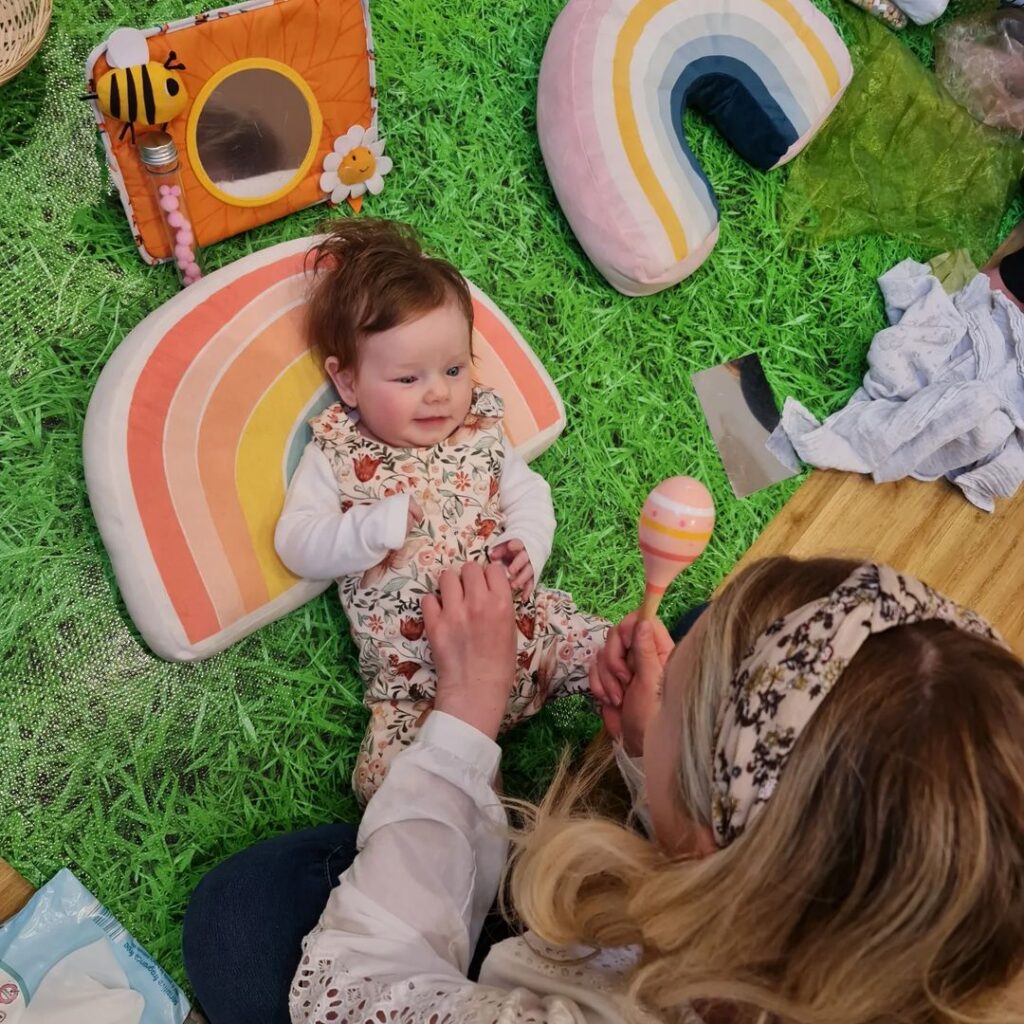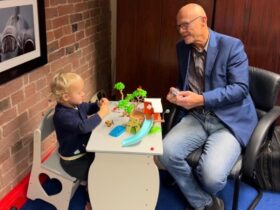Your baby’s captivating face, from chubby cheeks to sparkly eyes, isn’t just adorable—it’s a biological connection. Both of you are naturally inclined to enjoy each other’s company, which can foster your baby’s future relationships.
Research shows securely attached babies at 12 months tend to handle conflicts better in their twenties. Loving and attentive parenting can also protect your baby from chronic stress-related issues like sleep disorders and depression.
Bonding with your newborn is the intense attachment that motivates parents to care for and protect their baby, forming the foundation for the baby’s future relationships, sense of security, and self-esteem.
How To Bond With Your Baby
Bonding with your baby can take minutes, days, or weeks and may take longer after medical care or adoption. Don’t feel guilty if it takes time; it doesn’t mean you’re a bad parent.
Meeting your baby’s basic needs will naturally strengthen the bond. Bonding is a personal, gradual process. As routines settle, confidence and bonding will grow. These are the ways to bond with your baby:

1. Breastfeeding or Bottle-feeding
Feeding your baby, whether through breastfeeding or bottle-feeding, is a prime opportunity for bonding.
Your baby becomes familiar with your smell and touch during these intimate moments, reinforcing their sense of security and attachment to you.
2. Holding Skin-to-Skin
Holding your baby skin-to-skin, particularly right after birth, is known to have numerous benefits.
This close contact helps regulate your baby’s body temperature, heart rate, and stress levels, while also fostering a strong emotional connection between you and your baby.
3. Making Eye Contact
Eye contact during feedings and daily interactions is crucial for meaningful communication. It helps your baby recognize you and develop a sense of trust and security.
Additionally, babies often try to imitate your facial expressions, which aids in their emotional and social development.
4. Responding to Cries
Responding promptly to your baby’s cries is essential for building trust. When you comfort your baby, they learn that you are there to meet their needs, which reassures them and strengthens your bond.
5. Playing, Talking, Reading, and Singing
Engaging in these activities helps your baby become familiar with your voice and promotes their language development. Play also aids in developing their motor and social skills, while reading and singing provide comfort and joy.
6. Touch as a Soothing Language
Touch is one of the earliest forms of communication for babies. Gentle massages and frequent cuddles can be very comforting and reassuring, promoting your baby’s healthy growth and development.
7. Special Bonding for Dads
Dads can bond through feeding, diaper changes, and other special activities. These moments provide opportunities for dads to create unique and meaningful connections with their baby, reinforcing the baby’s sense of security and attachment.
8. Skin-to-Skin Contact, Massages, and Cuddling
These activities foster a strong connection and are soothing for both you and your baby. Skin-to-skin contact, in particular, has been shown to have numerous physiological and emotional benefits.
9. Prioritize Bonding Moments Over Household Chores
Focus on spending time with your baby rather than worrying about household tasks. Simple activities like holding your baby, rocking them to sleep, or talking to them about their surroundings are valuable bonding experiences.
10. Trust the Process
Meeting your baby’s basic needs and being present are fundamental for forming a strong bond. Relax and enjoy the journey of bonding with your baby, trusting that the bond will naturally strengthen over time.
Bonding is a Process!
Bonding is crucial for babies and usually develops through everyday caregiving. Parents should hold, rock, and have skin-to-skin contact with their baby.
Bonding can be delayed due to exhaustion, postpartum depression, or medical issues. If bonding feels delayed, seek support from healthcare providers and parenting classes. Enjoying time with your baby helps create a strong bond.
If concerns persist, especially regarding postpartum depression, get professional help. For more baby care tips, visit Moon Mystical. We are here to guide you through the early stages of parenting.















Leave a Reply
View Comments